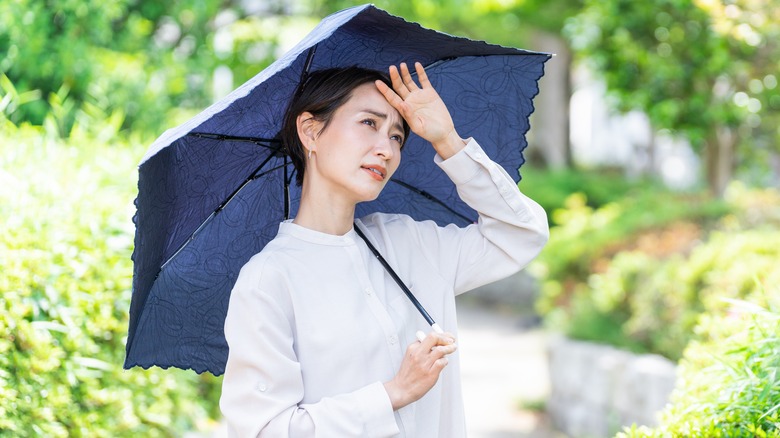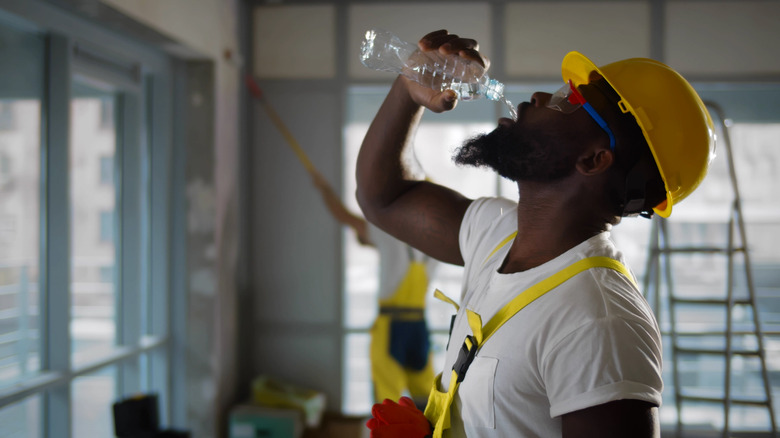Safety Precautions An ER Doctor Urges You To Take In Preparation For A Sweltering Summer
While we may equate summertime with fun beach trips, fruity popsicles, and well-earned vacations, the combination of sunlight, rising temperatures, and humidity during this time of year can also be quite demanding on our bodies. This is especially true for certain states, such as Texas, Louisiana, or Florida, as these areas are reported to experience the highest average summer temperatures across the country (per Current Results).
Over 67,500 heat-related emergency department visits take place each year in the U.S. (via U.S. Centers for Disease Control and Prevention). In speaking with Ryan Jordanhazy, MD, medical director of the emergency department at Novant Health Brunswick Medical Center, he shared with us what precautions one can take to safeguard our health as summer draws near.
"Any exposure to high environmental heat can place a person at risk of developing heat-related illness," Dr. Jordanhazy states. "Heat illness ranges from mild dehydration through heat exhaustion and heat stroke, which is a true medical emergency."
Dr. Jordanhazy goes on to explain who is most susceptible to severe cases of heat-related illness. "Like most environmental exposures, preparation and prevention is paramount to avoid any heat-related illness," he says. "Both the young and old age groups are at higher risk. Those with underlying medical conditions such as cardiac problems or diabetes are also at higher risk."
Indoor and outdoor tips for staying cool
Dr. Jordanhazy goes on to tell Health Digest some of the best things we can do to keep ourselves safe as temperatures begin to climb. "When the heat index reaches summer highs, avoid any prolonged exposure," he advises.
While remaining indoors is ideal, Dr. Jordanhazy acknowledges this may not be possible for everyone, such as those whose job requires them to work outdoors. "If you need to be outside, be prepared," Dr. Jordanhazy states. "Wear loose-fitting protective clothing and sunscreens."
In addition, he adds that it's essential to drink plenty of liquids. "Stay well hydrated. It is easy to underestimate how much fluid you need to stay hydrated in extreme heat," he states. "When working in the heat, we recommend individuals drink 8 ounces of water every 15 to 20 minutes." Lastly, Dr. Jordanhazy encourages people to take regular breaks as often as needed, even if you don't feel you're immediately in need of one.
Dr. Jordanhazy concludes the interview by offering some final words of advice. "If you are careful and understand the risks of heat illness prior to any exposure, anyone can safely navigate high temperatures, even if that means simply staying inside during the hottest days of the year."


